Prince of Persia: The Two Thrones
| S - | Ep - | |
| Video Game | - min | |
The Prince of Persia makes his way home to Babylon, bearing with him Kaileena, the enigmatic Empress of Time, and unspeakable scars from the Island of Time.
Prince of Persia: Warrior Within
| S - | Ep - | |
| Video Game | - min | |

Prince of Town
| Film | 110 min | |
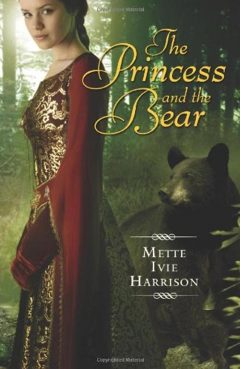
The Princess and the Bear
| S - | Ep - | 2009/05/01 |
| Novel | 327 min | |
A love against all odds . . . A battle against ancient forces . . . He was once a king, turned into a bear as punishment for his cruel and selfish deeds. She was a once a princess, now living in the form of a hound. Wary companions, they are sent in human form back to a time when magic went terribly astray. Together they must right the wrongs caused by this devastating power if only they can find a way to trust each other. But even as their attraction grows, an old evil resurfaces, and they risk losing each other and destroying magic forever.
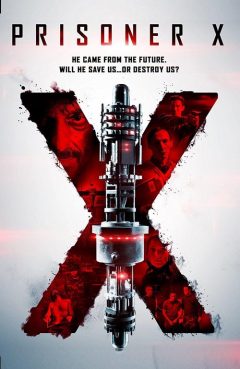
Prisoner X
| Film | - min | |
| ACT ADV | Canada | |
As the world rages in war and civil strife, a CIA agent arrives at a secret underground prison to interrogate a time-traveling terrorist, who she believes is responsible for the unfolding catastrophe.
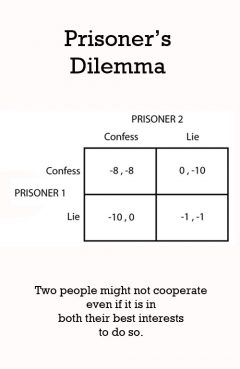
Prisoner's Dilemma
Two people might not cooperate even if it is in both their best interests to do so.
| S - | Ep - | |
| High | - min | |
Two people might not cooperate even if it is in both their best interests to do so. The prisoner's dilemma is a standard example of a game analyzed in game theory that shows why two completely "rational" individuals might not cooperate, even if it appears that it is in their best interests to do so. It was originally framed by Merrill Flood and Melvin Dresher working at RAND in 1950. Albert W. Tucker formalized the game with prison sentence rewards and named it, "prisoner's dilemma" (Poundstone, 1992), presenting it as follows:
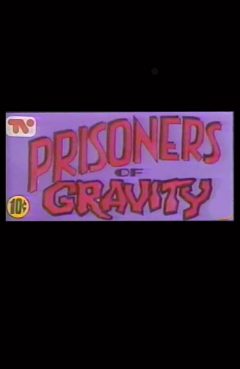
Prisoners Of Gravity
Alternate Histories
| S 2 | Ep 2 | 1991/10/10 |
| TV Series Episode | - min | |
| FAN SF TAL | Canada | |
Commander Rick looks at alternate histories -- what might have been had certain historical events been altered -- with speculative fiction writers George Alec Effinger (Everything But Honor), Gregory Benford (editor, What Might Have Been), Paul Di Filippo (Ciphers), Kim Stanley Robinson (Remaking History), Terry Bisson (Fire on the Mountain), William Gibson and Bruce Sterling (co-authors, The Difference Engine), Alternate Presidents anthology editor Mike Resnick and contributor Martha Soukup, plus Neil Gaiman (writer, DC Comics' The Sandman).

Prisoners Of Gravity
Time Travel
| S 3 | Ep 9 | 1992/12/03 |
| TV Series Episode | - min | |
| FAN SF TAL | Canada | |
Commander Rick examines the use of time travel in science fiction, with SF authors Connie Willis (discussing her latest novel, Doomsday Book), L. Sprague de Camp (Lest Darkness Fall), Michael Moorcock (Behold the Man), Gregory Benford (Timescape), John Gribbin ("Don't Look Back"), Robert Silverberg (co-author with Isaac Asimov of The Ugly Little Boy), Spider Robinson (Time Travelers Strictly Cash), Geoffrey A. Landis ("Ripples in the Dirac Sea") and Joe Haldeman ("The Hemingway Hoax").
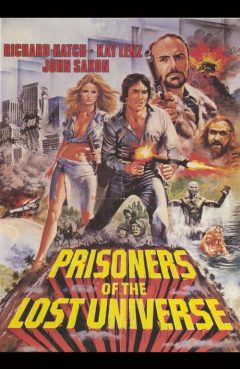
Prisoners of the Lost Universe
| 1983/08/15 | ||
| Film | 94 min NR | |
| ACT ADV SF | ||
Three people are transported into a parallel reality, where they find they must use modern technology, but medieval weapons, in order to save the citizenry from a murderous warlord. Through a series of coincidences, Carrie, Dan and Dr. Hartmann all fall through a teleporter device Hartmann has invented. Transported to what appears to be a prehistoric world in a parallel universe and unable to find the Doctor, Dan and Carrie must figure out a way to get back home. Before they can do that, however, they must deal with tribes of savage cavemen, as well as brutal warlord named Kleel who has taken a liking to Carrie and seems to be unusually well-supplied with Earth technology.

"Private Memories"
| S - | Ep - | 2013/05/20 |
| Short Story | - min | |
| USA | ||
The narrator loops over the same stretch of a few minutes over and over in order to talk you out of suicide, and then a second set of loops.
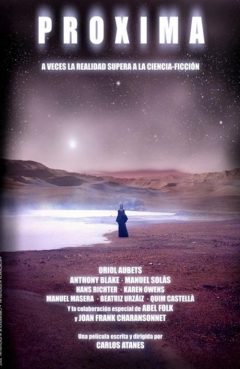
Proxima
| 2008/06/18 | ||
| Film | 116 min | |
| USASF | ||
Tony, the owner of a small fantastic film video shop, has found out that at times reality can defy science-fiction. The time has come to embark on a trip to a place nobody has ever been to before.

"The Probable Man"
| S - | Ep - | 1941/07/ |
| Short Story | - min | |

ProbudÕm se vcera
| Film | - min | |
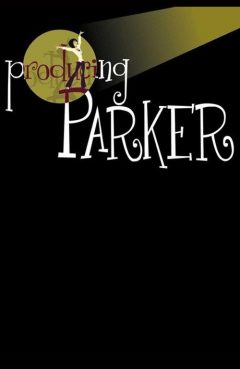
Producing Parker
The Parker Prophecies
| S 2 | Ep 13 | 2011/07/08 |
| TV Series Episode | - min | |
| COM | ||
Parker has to contend with Dee, who has been reverted to a teenager by a time machine. Parker uses the time machine to go into the future and see what awaits her.
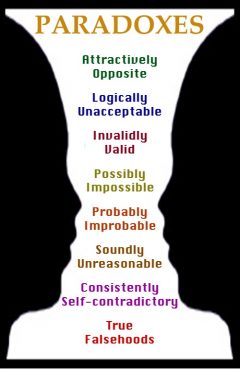
Productive Failure
| S - | Ep - | |
| - min | ||
Providing less guidance and structure and thereby causing more failure is likely to promote better learning.
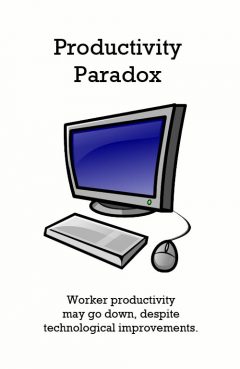
Productivity Paradox (Solow Computer Paradox)
Worker productivity may go down, despite technological improvements.
| S - | Ep - | |
| - min | ||
The productivity paradox was analyzed and popularized in a widely cited article by Erik Brynjolfsson, which noted the apparent contradiction between the remarkable advances in computer power and the relatively slow growth of productivity at the level of the whole economy, individual firms and many specific applications. The concept is sometimes referred to as the Solow computer paradox in reference to Robert Solow's 1987 quip, "You can see the computer age everywhere but in the productivity statistics." The paradox has been defined as the discrepancy between measures of investment in information technology and measures of output at the national level. It was widely believed that office automation was boosting labor productivity (or total factor productivity). However, the growth accounts didn't seem to confirm the idea. From the early 1970s to the early 1990s there was a massive slow-down in growth as the machines were becoming ubiquitous. (Other variables in country's economies were changing simultaneously; growth accounting separates out the improvement in production output using the same capital and labour resources as input by calculating growth in total factor productivity, AKA the "Solow residual".) The productivity paradox has attracted a lot of attention because technology seems no longer to be able to create the kind of productivity gains that occurred until the early 1970s. Some, such as economist Robert J. Gordon, are now arguing that technology in general is subject to diminishing returns in its ability to increase economic growth.
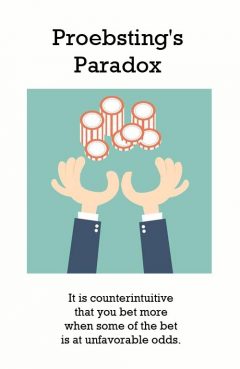
Proebsting's Paradox
It is counterintuitive that you bet more when some of the bet is at unfavorable odds.
| S - | Ep - | |
| - min | ||
In probability theory, Proebsting's paradox is an argument that appears to show that the Kelly criterion can lead to ruin. Although it can be resolved mathematically, it raises some interesting issues about the practical application of Kelly, especially in investing. It was named and first discussed by Edward O. Thorp in 2008. The Kelly criterion is an often optimal strategy for maximizing profit in the long run. Proebsting's paradox apparently shows that the Kelly criterion can lead to ruin. It is counterintuitive that you bet more when some of the bet is at unfavorable odds.

"Professor Jennifer Magda-Chichester's Time Machine"
| S - | Ep - | 2012/09/19 |
| Short Story | - min | |
Each time professor Magda-Chichester invents her time machine, it turns out that someone else has already beaten her to the punch.
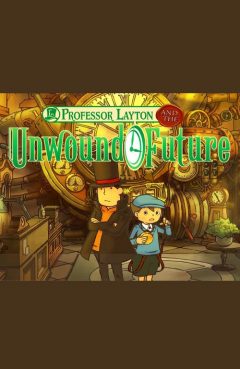
Professor Layton and the Unwound Future
| S - | Ep - | 2008/11/27 |
| Video Game | - min | |
As Layton and Luke are invited to witness a demonstration of a time machine built by Dr. Alain Stahngun, the experiment goes awry, causing the disappearance of Stahngun and the prime minister, Bill Hawks.
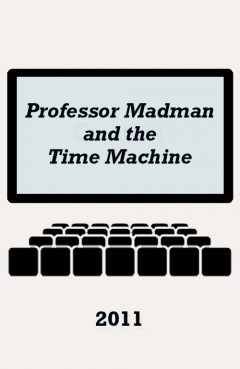
Professor Madman and the Time Machine
| Film | - min | |